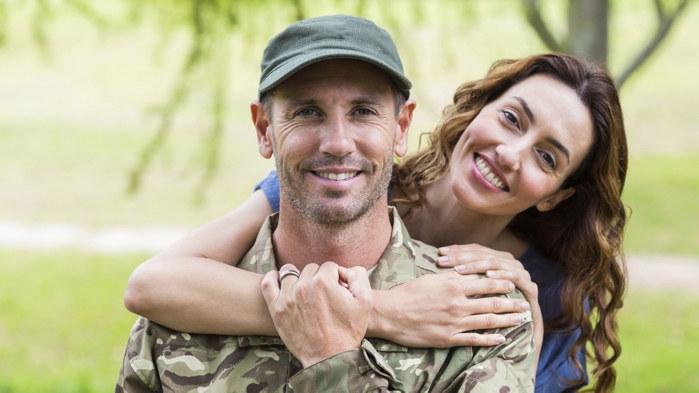Veterans Day is an important time set aside to celebrate America’s veterans. Yet thanking and honoring those for their service is only a very small part of a very big military landscape.
A portrait of the military caregiver
Between 275,000 and 1 million Americans currently serve as military caregivers for veterans of the Iraq and Afghanistan wars, according to recent estimates from a Rand Corporation study .
And while the portrait of the American caregiver is overwhelmingly female and increasingly sandwiched between caring for both aging parents and children simultaneously, the military caregiver is an even more unique subset of the picture.
“This sandwich generation has really emerged and all the health problems, stresses and concerns that come from balancing work and being between two generations is becoming more and more troubling to the American health care system,” said Dr. Chere Gregory, Novant Health senior vice president of women’s services. “In general, 51 percent to 65 percent of caregivers in America are women. That holds even truer for caregivers of veterans who return home. And even if a wounded veteran is a woman, there is probably another woman – a mother, aunt or sister – who gets placed in the role of caregiver of that veteran.”
In fact, a 2010 study by the United Health Foundation found as many as 96 percent of caregivers for veterans are women.
Even the definition of a caregiver may be broader than many people realize, encompassing everything from assisting with grocery shopping, housekeeping, cooking and paying bills to assisting with medication, bathing, dressing, eating or using the bathroom.
Anyone who is not paid to provide care is called an informal or family caregiver. These caregivers account for 80 percent of the long-term care in the United States.
Navigating unique challenges
While caregiving comes with its own obstacles, Gregory stressed that veterans returning home and re-entering civilian life are often presented with unique challenges – for wounded veterans and their caregivers alike.
“Many of the challenges facing our wounded veterans vary widely – some are physical injuries that can be disabling, some are behavioral health and emotionally related,” she said.
“Veterans making the transition back home have to find resources, find work – they have a tremendous amount of skill, but for many that may not translate easily into a job when they return,” she said. “It puts a lot of our veterans and their caregivers in a situation where their socioeconomic status is very limiting.”
Novant Health offers support and helps veterans and their caregivers access the resources available to them, Gregory said.
“Our case mangers spend a lot of time working with the Veterans Affairs (VA) to help our patients get into the system to access the things they need,” she added. “We use the resources and our expertise to help them understand what’s available to them and the best way to use the VA system for their health care.”
How a 'labor of love' equals big health impact
Most people don’t realize the toll that caregiving can take on caregivers’ health, Gregory said. “People who have high blood pressure and diabetes are more likely to experience cardiac events as the result of being caregivers – and most people have no idea,” she said, adding that the moment someone assumes the role of caregiver he or she should contact Novant Health and get a primary care provider.
“We have physicians who see both the caregiver and the person they’re caring for and they’ll try to see you in back-to-back visits so you only have to make one trip,” Gregory said. “We make it easy for you so you can both get the health care that you need. We encourage people to use us a resource to coordinate care.”
For Gregory, it’s important to remind caregivers that the care they provide is only as good as their own health.
“I know there are a lot of people who are unaware of how this labor of love can impact you in the long run. If you want to be a caregiver for as long as the role is required, you need to be healthy,” she said. “That’s important to remember. If you don’t take care of yourself, you may not live long enough to be a caregiver for as long as your loved one needs you.”
Novant Health offers resources for caregivers online here .




